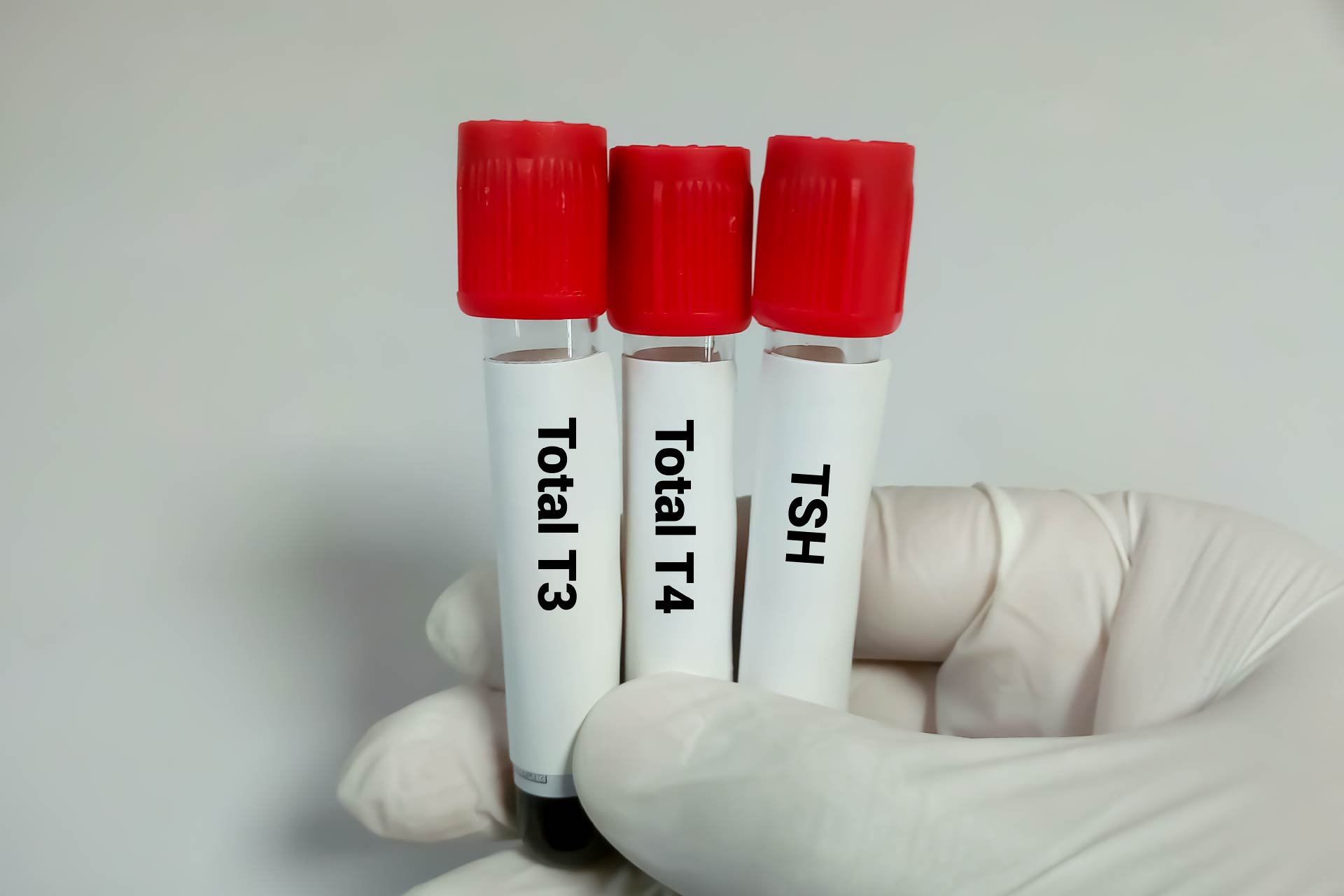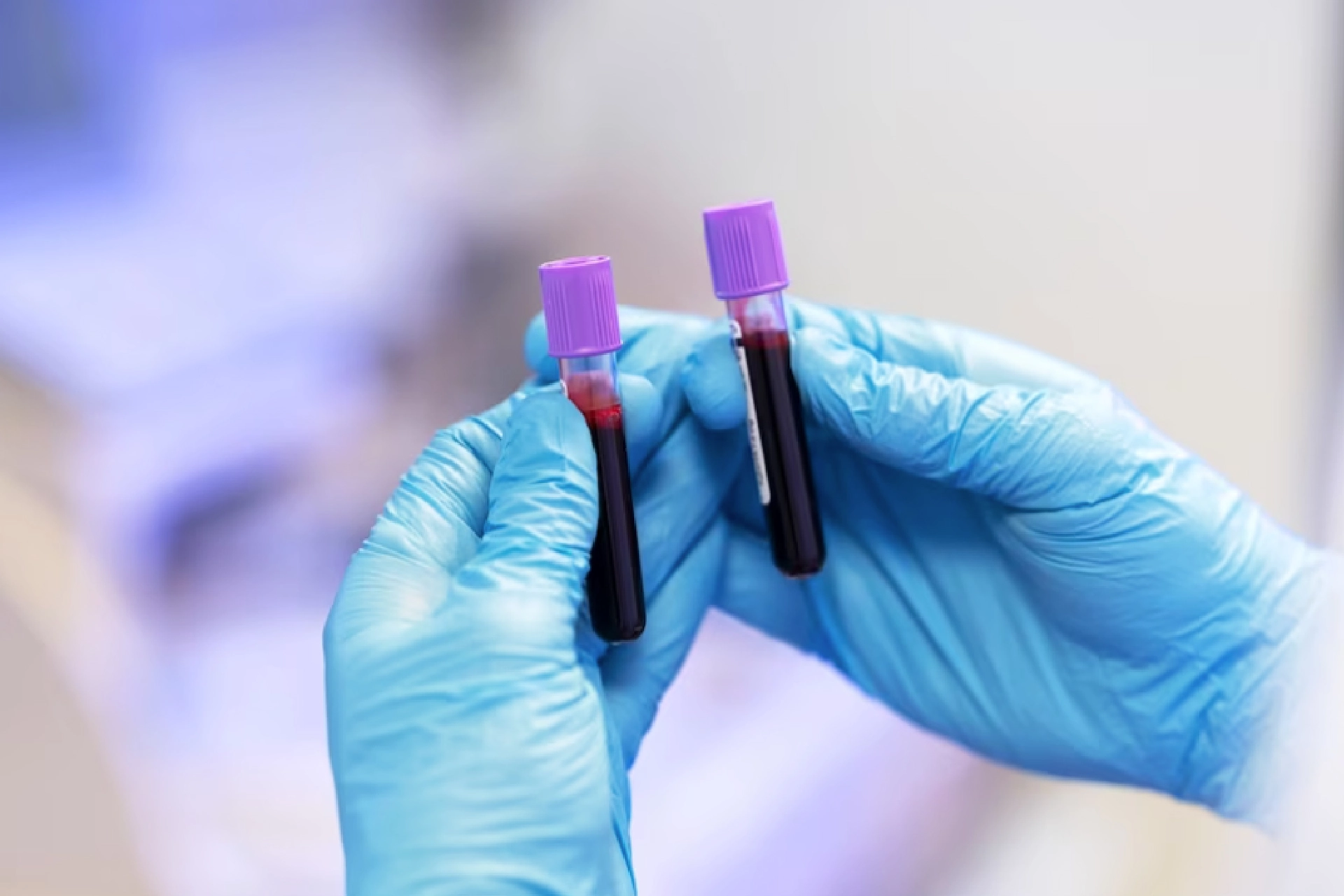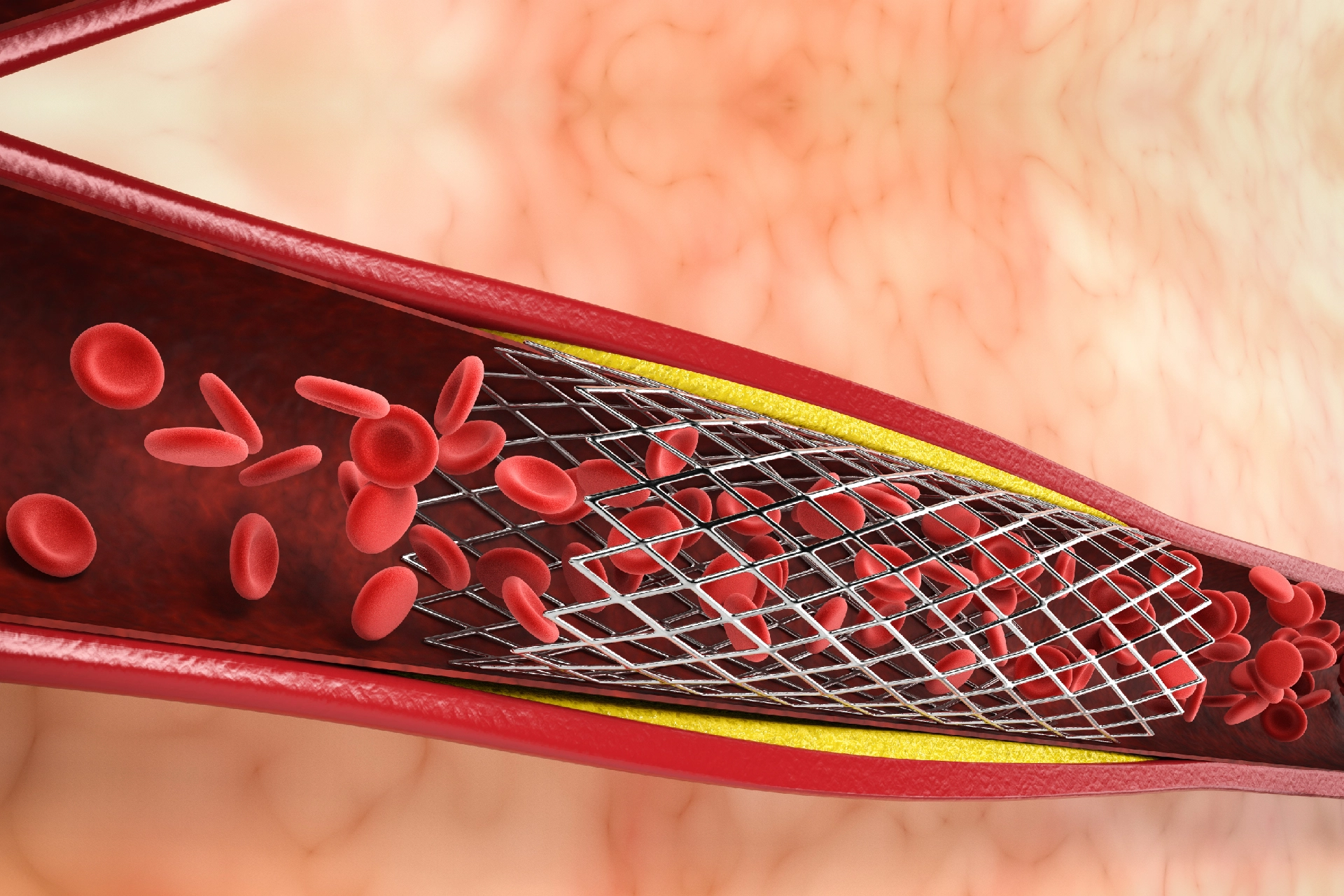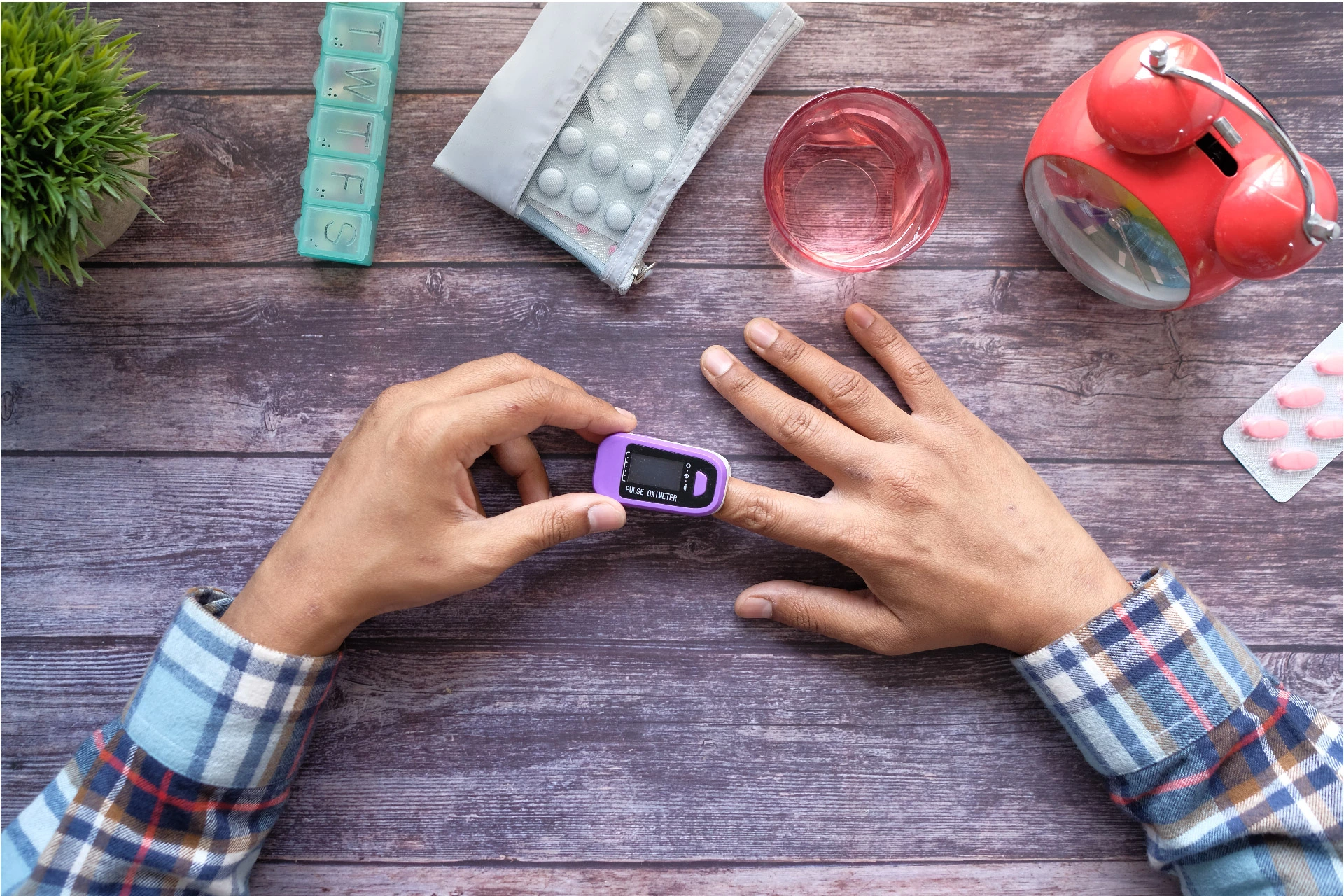Health Tests | 5 min read
Triiodothyronine Test (T3 Test): Purpose, Procedure, Level and Limitation
Medically reviewed by
Table of Content
Synopsis
Dry eyes or skin are few reasons to get a triiodothyronine test. Abnormal triiodothyronine thyroid function test results may mean hypo or hyperthyroidism. Get a blood test triiodothyronine early on.
Key Takeaways
- A triiodothyronine test can help diagnose possible thyroid disorders
- There are two types of T3 hormone in your body: free and bound
- Fasting is not required before a triiodothyronine thyroid function test
With the help of the total triiodothyronine test, doctors aim to diagnose any thyroid disorder you are suffering from. Note that the thyroid is a gland located below your Adams's apple and creates hormones like triiodothyronine (T3) and thyroxine (T4). Here, 3 and 4 stand for the number of iodine atoms present in the molecules of these hormones. Together, T3 and T4 control your body's vital parameters like heart rate, temperature, metabolism, and more.
When it comes to the function of T3, note that most of these hormones attach themselves to protein. The remaining ones are called free T3, and they travel through your blood unbound. With the T3 blood test, the triiodothyronine hormone's total value is measured, i.e., it determines the value of both the free and bound T3 present in your body.
Remember, the triiodothyronine thyroid function test is also called the following.
- Toxic nodular goiter T3
- T3 radioimmunoassay
- Graves' disease T3
- Thyrotoxicosis T3
- Thyroiditis T3
To know more details about the triiodothyronine test, read on.
What are the signs to consider going for a triiodothyronine test?
In case you show any or a few of the following diseases or symptoms that have links to thyroid disorders, doctors may recommend a T3 lab test.
- Indigestion issues (constipation, bloating, flatulence, etc.)
- Mental health disorders (depression, anxiety, etc.)
- Irregular periods
- Sleep disorder
- Dry eyes
- Tremors in hands
- Loss of hair
- Rapid heartbeat
- Weakness
- Rapid gain or loss of weight
- Dry skin
- Susceptibility to increased heat and cold
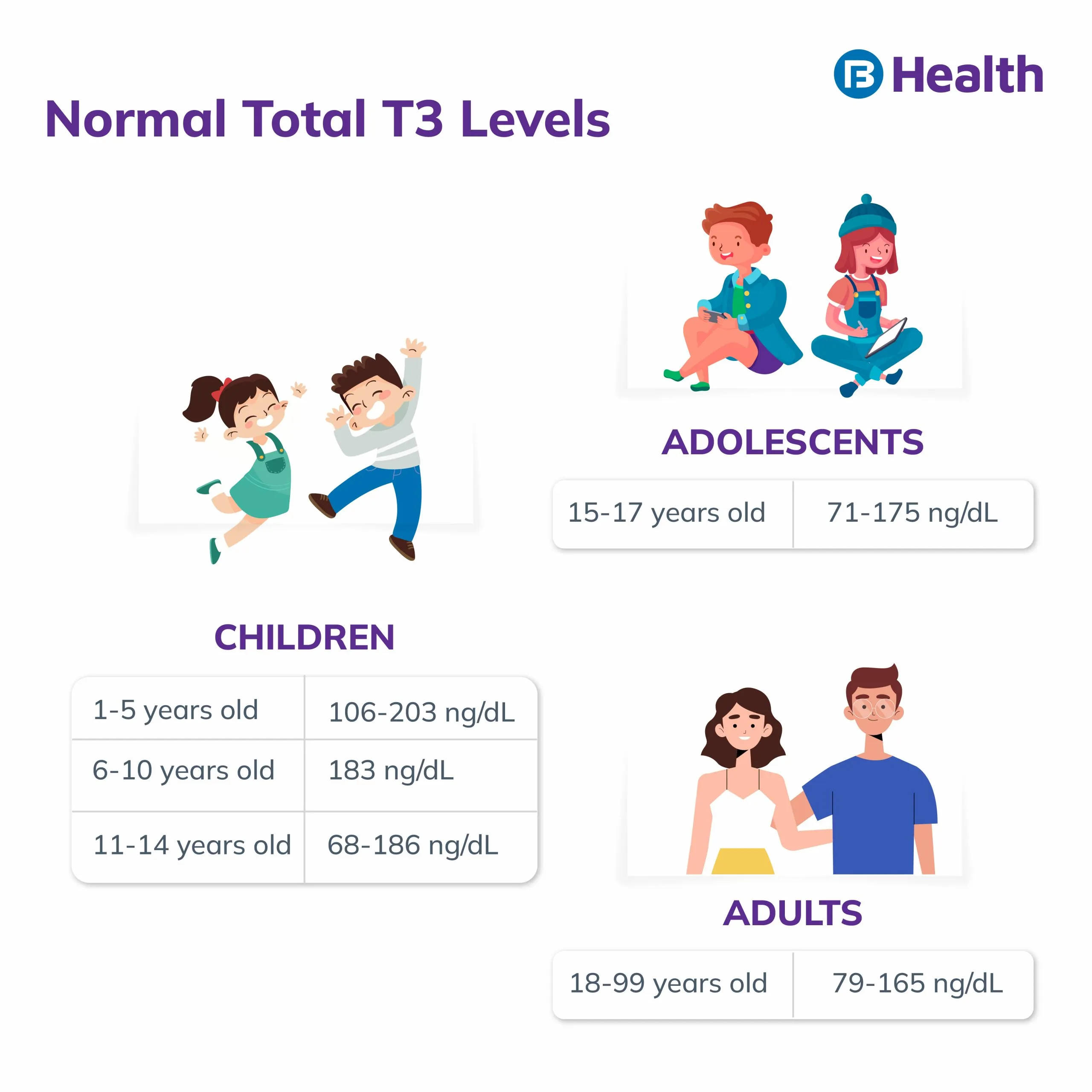
What are the purposes of performing a T3 test?
Doctors prescribe a triiodothyronine test when they suspect that you may have one of the following thyroid disorders.
- Hypopituitarism: Affects the pituitary gland by reducing pituitary hormone production
- Thyrotoxic periodic paralysis: Caused by excessive production of thyroid hormones, affects the functions of muscles
- Hyperthyroidism: Also caused by excessive production of thyroid hormones
- Hypothyroidism (primary or secondary): Lack of production of thyroid hormones
How to prepare for the T3 test?
When doctors ask you to take the triiodothyronine test, it is important to inform them about the medications you are currently on. By knowing about the drugs you are consuming, doctors can advise you whether you need to alter their doses or stop them so that result of the triiodothyronine test is not affected.
Note that steroids, hormone-booster drugs like estrogens and androgens, and birth control pills are some medications that can change your T3 levels. Apart from that, make sure to wear loose clothes with short sleeves to help the healthcare provider draw blood from your arm without any difficulty. As fasting is not a precondition for a T3 test, do eat a healthy meal to keep yourself full. Also, drinking enough water, such as being hydrated, will also help the professional find veins to draw blood.
How is the T3 test performed?
The blood sample for the triiodothyronine thyroid function test is collected just like any other blood test. It takes less than five minutes.
What does the triiodothyronine test result mean?
As the functions of the thyroid are not simple, just a triiodothyronine test may not be enough to understand a health issue. Doctors may recommend additional procedures like T4 and TSH tests to get the complete picture.
When comes the normal range of T3 is between 60 and 180 nanograms per deciliter (ng/dL) for total T3 and between 130 and 450 picograms per deciliter for T3 [1]. Remember that labs use different types of measurements or ranges, so results may vary.
Considering this, here are the possible disorders that a high level of T3 can indicate:
- Grave's disease (usually accompanied by low levels of TSH)
- Liver disease
- Toxic nodular goiter
- Silent thyroiditis
- T3 thyrotoxicosis, a rare disease
- Hyperthyroidism (usually accompanied by low levels of TSH)
If your T3 level is lower than usual, it can indicate the following:
- A chronic illness for a short or long period of time
- Hypothyroidism (usually accompanied by high levels of TSH)
- Starvation or malnutrition
- Hashimoto's thyroiditis (usually accompanied by high levels of TSH)
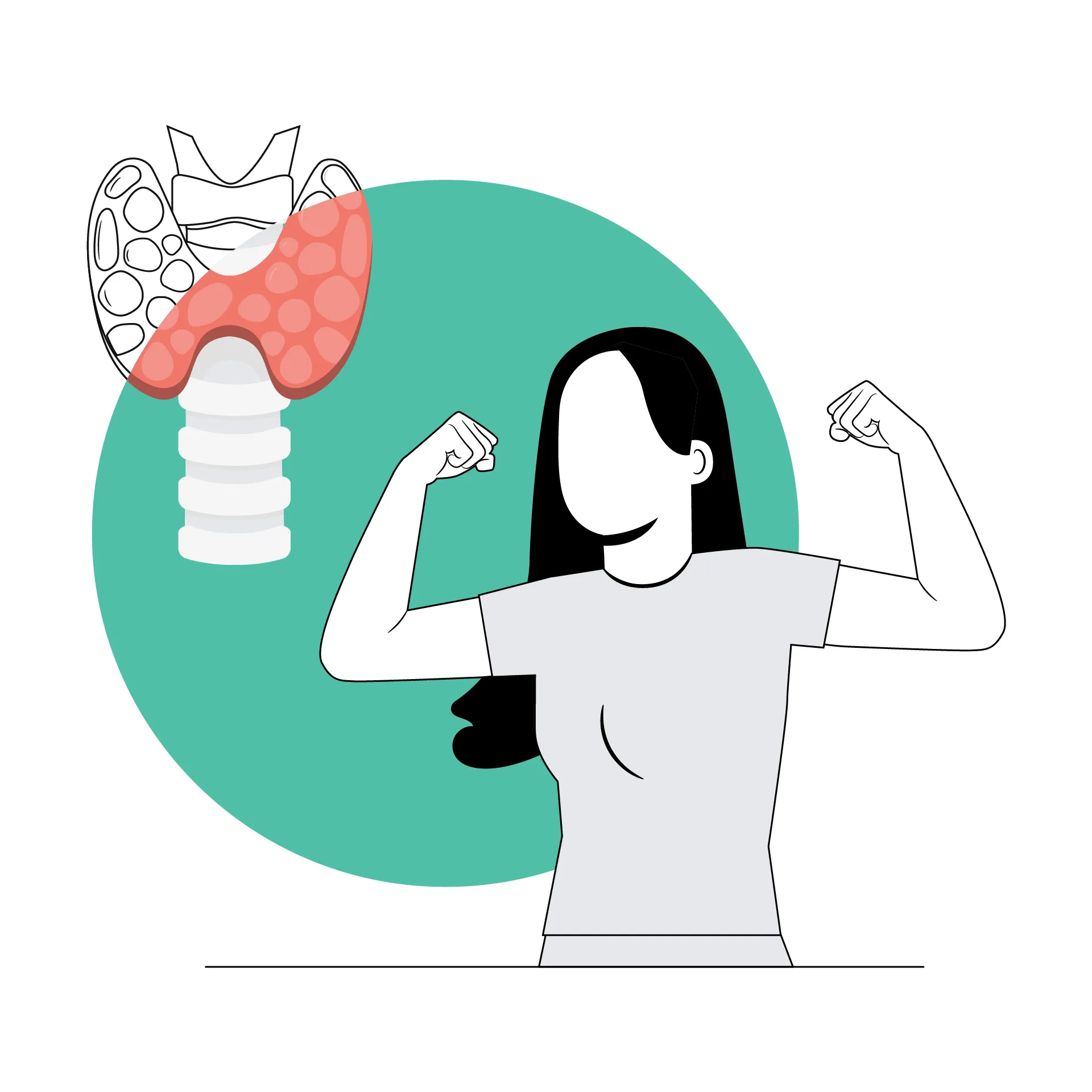
Limitation of the Triiodothyronine Test
About 99.7% of T3 is attached to proteins, and the remaining are unbound. Thus, determining total T3 can give erroneous results if the value of the binding proteins changes.
This is why doctors now prefer the free T3 blood test rather than the total T3 test.
With all this information about the triiodothyronine test at your disposal, you can decide when to visit a doctor to check for a possible thyroid disorder and how to follow their prescription or advice. What's more, you can book this lab test and others for determining thyroid issues as well as general health with ease on the Bajaj Finserv Health platform or app and enjoy discounts too! You can also book convenient teleconsultations as well as in-person appointments within minutes here.
For comprehensive healthcare support, choose any of the Complete Health Solution plans available under the Aarogya Care umbrella on Bajaj Finserv Health. With it, you can get lab test reimbursements for different types of blood tests as well as full body tests. To lead life stress-free, get yourself covered right away!
References
- https://www.ucsfhealth.org/medical-tests/t3-test
Disclaimer
Please note that this article is solely meant for informational purposes and Bajaj Finserv Health Limited (“BFHL”) does not shoulder any responsibility of the views/advice/information expressed/given by the writer/reviewer/originator. This article should not be considered as a substitute for any medical advice, diagnosis or treatment. Always consult with your trusted physician/qualified healthcare professional to evaluate your medical condition. The above article has been reviewed by a qualified doctor and BFHL is not responsible for any damages for any information or services provided by any third party.
